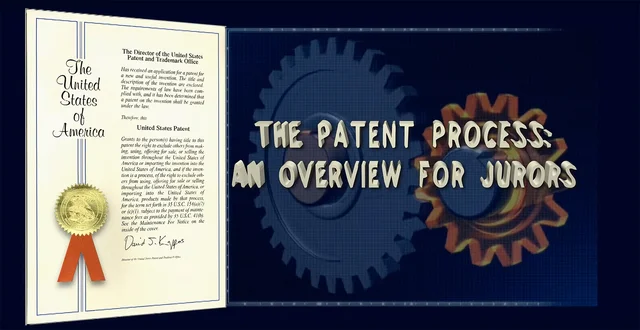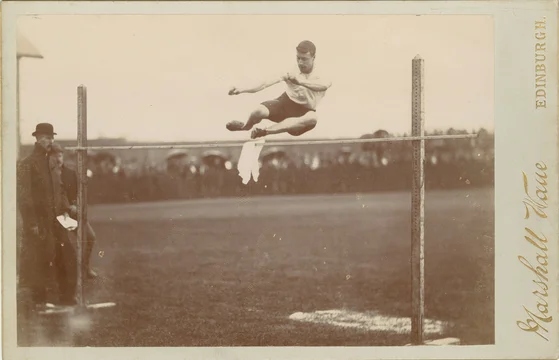
Every once in a while, parties will offer a "patent law expert" with opinions about patent office proceedings, such as patent prosecution. Often, smart opposing counsel will move to exclude that testimony, and it's not unusual for the Court to grant those motions.
A decision last week reminded of this issue. Late last week, Judge Burke granted a motion to preclude some expert testimony about patent prosecution, and excluded expert testimony regarding the patent examiner and plaintiffs' state of mind:
ORAL ORDER: The Court, having reviewed the portion of Plaintiffs' Daubert motion seeking to exclude certain opinions of Defendant's technical expert John Roche, ("Motion"), . . . and the briefing related thereto, . . . and having considered the relevant legal standards, . . . hereby ORDERS that the Motion be GRANTED-IN-PART and DENIED-IN-PART as follows: . . . With regard to paragraph 26, Plaintiffs' Motion is GRANTED. Plaintiffs argue that this paragraph improperly includes opinions regarding the Examiner and Plaintiffs['] state of mind. (D.I. 407 at 44-45) Defendant did not provide any response as to why these statements should withstand Plaintiffs' challenge.
Sysmex Corporation v. Beckman Coulter, Inc., C.A. No. 19-1642-JFB-CJB, D.I. 547 (D. Del. June 9, 2022).
The moving party's brief argued that the expert's opinions were irrelevant speculation, D.I. 426 at 44-45, and, as set forth above, the opposing party here didn't even bother to reply. But the outcome is consistent with prior case law.
Can a "Patent Law Expert" Testify in D. Del.?
Sometimes, but it varies, and generally only as to certain topics. The topic that is most often permitted is patent office procedure. But even then, the precedent is mixed.
There is some District of Delaware-specific background here. Both former Judge Jordan (now a 3rd Circuit judge) and former Chief Judge Robinson (now retired form the bench) maintained nearly-identical written policies prohibiting patent law expert testimony regarding patent office procedure:
In all patent jury trials, the court shows the video “An Introduction to the Patent System” to the jurors in connection with its preliminary jury instructions. The 18 minute video is distributed by the Federal Judicial Center and provides jurors with an overview of patent rights in the United States, patent office procedure and the contents of a patent. Thus, expert testimony from attorneys regarding patent practice and procedure is not required and will not be permitted except in the case of extraordinary circumstances.
This is from Judge Robinson's policy; Judge Jordan's was nearly identical. There are cases and transcripts out there from Judges Robinson and Jordan excluding expert testimony based on these policies. There are similar cases from Judge Sleet, although to my knowledge he did not have a similar written policy.
Even in those days, however, the precedent was somewhat mixed; Judge Farnan, for example, at least once permitted expert testimony as to "PTO practice and procedures." P&G v. Teva Pharm. USA, Inc., C.A. No. 04-940-JJF, 2006 U.S. Dist. LEXIS 54260, at *3 (D. Del. Aug. 4, 2006).
Since then, the issue has come up repeatedly, and our judges (and visiting judges) have gone both ways on it. Judge Burke and visiting Judges Goldberg and Bartle have permitted expert testimony on PTO practices and procedures; Judge Andrews has prohibited it.
Former Chief Judge Stark likewise occasionally permitted testimony regarding the PTO's heavy workload, on the basis that it is consistent with the Federal Judicial Center's patent video—the opposite of the reasoning applied by Judges Robinson and Jordan in their policies. See, e.g., IBM v. Groupon, Inc., C.A. No. 16-122-LPS, 2018 U.S. Dist. LEXIS 100333, at *2 (D. Del. June 15, 2018).
In sum, testimony on patent office procedure may be acceptable for some judges, but it's probably best to keep in mind that there may be a chance of exclusion. Consult your local counsel...
What Topics Are Totally Off Limits for a Patent Law Expert?
Typically, "patent law experts" are not permitted to testify on inequitable conduct, Shire, 2021 U.S. Dist. LEXIS 612551 at *47, but even that has occasionally had exceptions—former Judge Farnan, for instance, permitted that kind of testimony in some instances.
Likewise, testimony on legal issues such as assignment or transfer is often prohibited, although Judge Stark allowed it in at least one bench trial (while advising that it was a poor use of the parties' time).
Finally, both former Judges Stark and Robinson both prohibited testimony regarding examiner incentives and thoroughness. See IBM v. Groupon, Inc., C.A. No. 16-122-LPS, 2018 U.S. Dist. LEXIS 100333, at *2 (D. Del. June 15, 2018); L’Oreal S.A. v. Revlon Consumer Prods., Corp., 2008 WL 5868688, at *1 (D. Del. Sept. 30, 2008). For Judge Stark, at least, it seems there was a line between permissible testimony about the PTO's heavy workload (see above) and impermissible testimony about their incentives and thoroughness.
Are Patent Law Experts Worth It in D. Del.? Probably Not.
Everything is going to depend on the specific case, but generally speaking, the default is not to use a patent law expert—and for good reason. Do you really want to invest the time and money to recruit a patent law expert, develop their opinions, and defend their deposition, only to risk exclusion as you get closer to trial?
If you enjoyed this post, consider subscribing to receive free e-mail updates about new posts.





